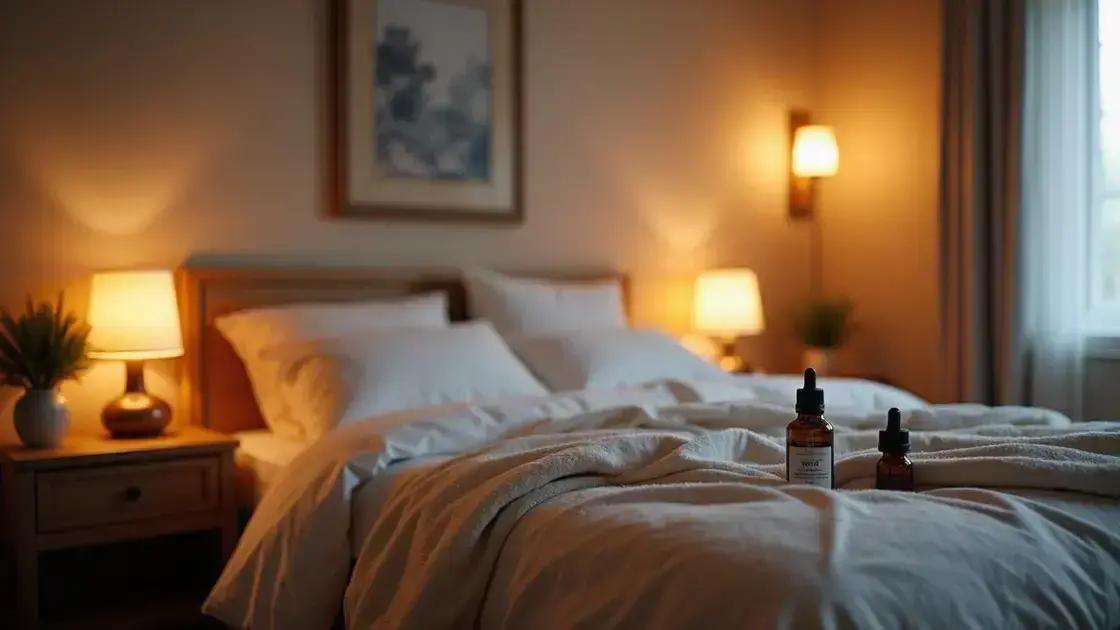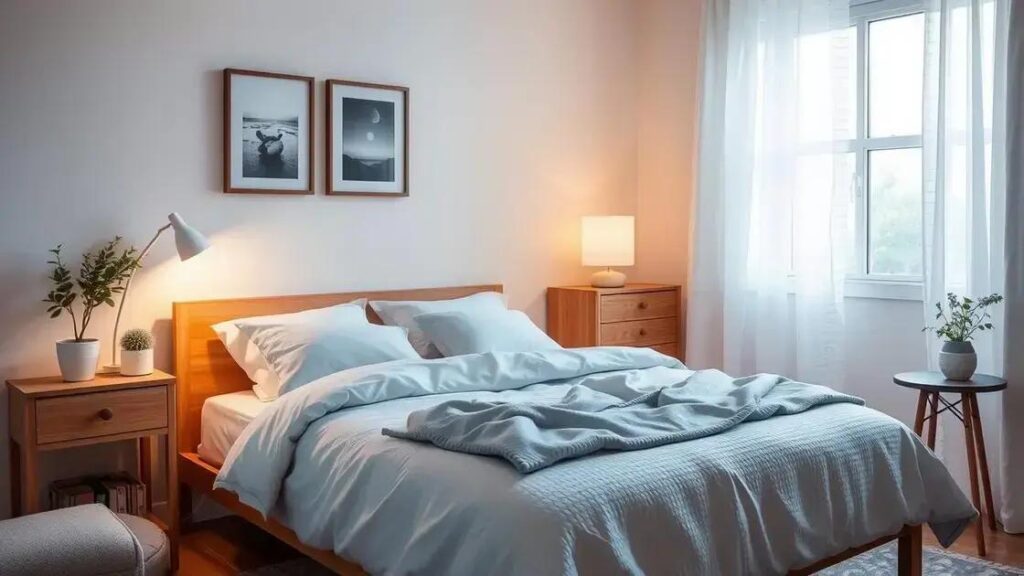To build a sleep-inducing evening routine, focus on establishing consistent bedtimes, engaging in relaxing activities like reading or meditation, creating a calming environment with soft lighting and pleasant scents, and avoiding screens and caffeine before bed to improve sleep quality.
Building a sleep-inducing evening routine is essential for achieving restful sleep and overall well-being. In today’s fast-paced world, prioritizing relaxation and winding down before bed can significantly enhance the quality of your sleep. This article delves into effective strategies for establishing a calming evening ritual that prepares both your body and mind for a restful night. From creating a serene atmosphere to avoiding common pitfalls, learn how to transform your evenings for better rest.
The Importance of a Sleep Routine

Establishing a consistent sleep routine is crucial for maintaining optimal health and well-being. When you have a regular schedule, your body learns when to feel sleepy. This helps align your internal clock, making it easier to fall asleep and wake up refreshed.
Benefits of a Sleep Routine
Following a sleep routine has several benefits. It can improve your mood, boost cognitive functions, and enhance overall physical health. People who stick to a sleep schedule often report sleeping more soundly and experiencing fewer sleep disturbances.
Impact on Mental Health
Inconsistent sleep patterns can contribute to mental health issues like anxiety and depression. When you have a set routine, you may find it easier to manage stress and maintain a positive outlook.
Physical Health Benefits
A predictable sleep schedule can strengthen your immune system and reduce the risk of chronic diseases. By ensuring you get the right amount of sleep, you protect your health and prolong your life.
Incorporating a regular sleep routine into your daily life is a simple yet effective way to promote better sleep hygiene.
Steps to Create Your Evening Routine

Creating an effective evening routine can help you unwind and prepare for restful sleep. Here are some useful steps to consider:
1. Set a Consistent Bedtime
Choose a time to go to bed each night and stick to it, even on weekends. This helps regulate your body’s internal clock.
2. Create a Wind-Down Period
Start your evening routine one hour before bed. Use this time to relax and transition from daytime activities. You might turn off screens and dim the lights.
3. Engage in Relaxing Activities
Incorporate calming activities into your routine. Consider reading a book, practicing yoga, or meditating. These actions can help signal to your body that it’s time for sleep.
4. Prepare Your Sleep Environment
Make your bedroom a peaceful haven. Ensure your room is cool, quiet, and dark. You can use blackout curtains and a white noise machine if needed.
Following these steps regularly can enhance your evenings, leading to better sleep quality over time.
Tips for a Relaxing Atmosphere

Creating a relaxing atmosphere is key to a sleep-inducing evening routine. Here are some effective tips:
1. Use Soft Lighting
Bright lights can be stimulating. Instead, switch to soft, warm lighting in the evening. Consider using lamps or dimmers to create a cozy environment.
2. Incorporate Pleasant Scents
Aromatherapy can greatly enhance relaxation. Scents like lavender and chamomile can help calm your mind. Use essential oils or scented candles to fill your space.
3. Maintain a Comfortable Temperature
Your bedroom should be cool and comfortable. The ideal temperature for sleep is typically around 60 to 67 degrees Fahrenheit. Adjust your thermostat and use breathable bedding.
4. Minimize Noise and Distractions
Reduce noise and distractions to create a peaceful environment. Consider using earplugs or a white noise machine if you live in a noisy area. This can help drown out unpleasant sounds.
By applying these tips, you can transform your space into a relaxing sanctuary that promotes better sleep.
Common Mistakes to Avoid

Avoiding common mistakes can make your evening routine more effective. Here are some pitfalls to watch out for:
1. Using Screens Before Bed
Engaging with screens from phones, tablets, or TVs can disrupt your sleep. The blue light emitted can signal your brain to stay awake. Try to avoid screens at least one hour before bedtime.
2. Skipping Relaxation Time
Rushing through your evening routine can lead to stress. Make sure to allocate enough time for calming activities. Dedicating this time helps your mind and body prepare for sleep.
3. Consuming Caffeine Too Late
Caffeine can linger in your system for hours. Avoid drinks with caffeine (like coffee or soda) in the afternoon and evening to help your body wind down.
4. Ignoring Sleep Environment
Your sleep environment plays a vital role in your rest. Neglecting factors like noise, temperature, and light can hinder your ability to fall asleep. Ensure your bedroom is conducive to relaxation.
By steering clear of these mistakes, you’ll improve your chances of achieving a restful night’s sleep.
Creating Your Perfect Sleep-Inducing Evening Routine
Building a sleep-inducing evening routine is essential for improving your overall health and well-being. By following effective steps and avoiding common mistakes, you can create a calm and peaceful transition to sleep.
Incorporating relaxing activities, setting consistent bedtimes, and enhancing your sleep environment are crucial elements. Remember to be mindful of distractions like screens and caffeine intake that can disrupt your ability to rest.
With a well-structured evening routine, you can promote better sleep quality and wake up ready to tackle the day ahead.
FAQ – Frequently Asked Questions about Building a Sleep-Inducing Evening Routine
Why is an evening routine important for sleep?
An evening routine helps signal to your body that it’s time to wind down, making it easier to fall asleep and achieve restful sleep.
What activities should I include in my evening routine?
Incorporate calming activities such as reading, practicing yoga, meditating, or taking a warm bath to help you relax before bed.
How can I create a relaxing atmosphere for sleep?
Use soft lighting, pleasant scents like lavender, and keep your bedroom cool and quiet to create a peaceful environment conducive to sleep.
What are common mistakes to avoid in an evening routine?
Avoid using screens right before bed, skipping relaxation time, consuming caffeine too late, and neglecting your sleep environment.
How long should my evening routine last?
Aim for at least 30 to 60 minutes for your evening routine to allow your body and mind to transition smoothly to sleep.
Can I change my evening routine once I establish it?
Absolutely! You can adjust your routine based on what works best for you and your lifestyle. Consistency is key, but feel free to adapt as needed.













